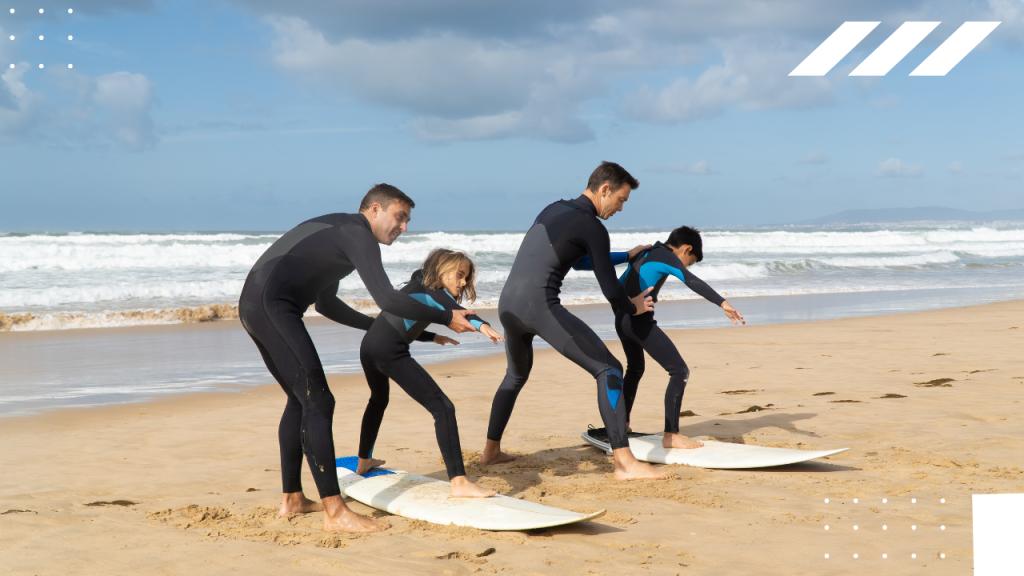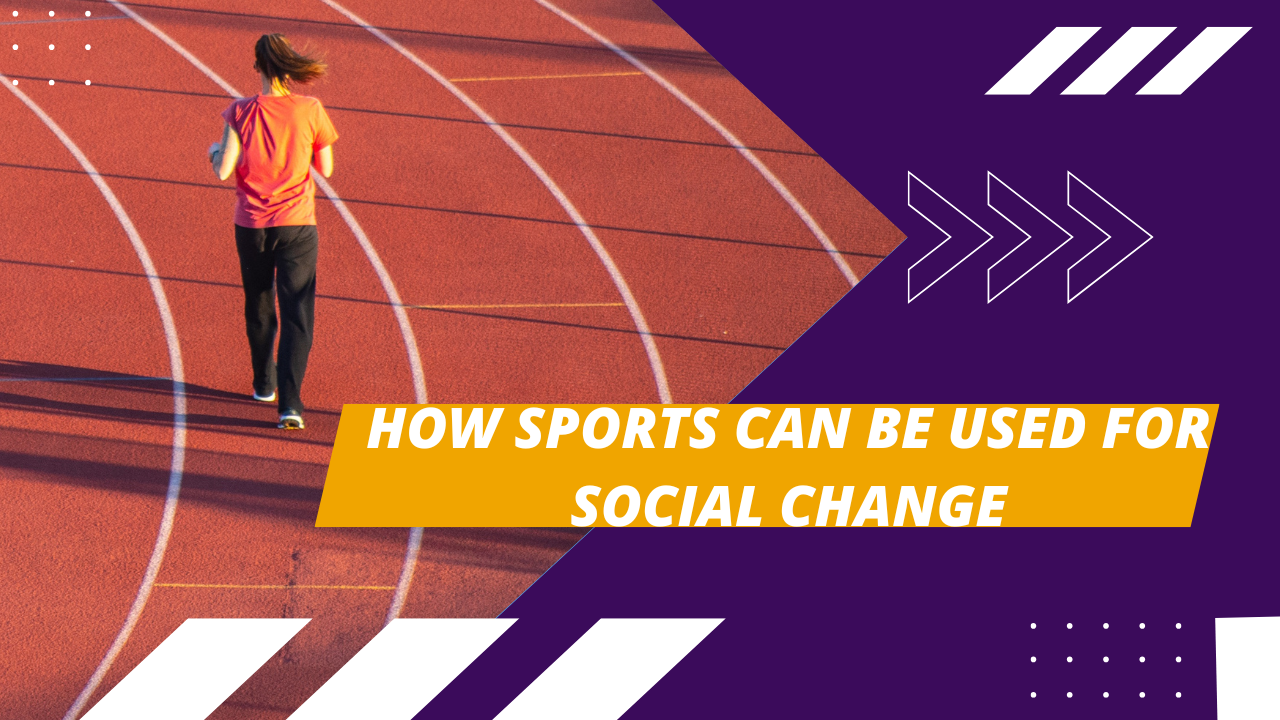Absolutely! Here’s a detailed, 2000-word article on the topic “How Sports Can Be Used for Social Change”, written in a conversational and engaging tone with rich examples, credible sources, and SEO best practices applied.
How Sports Can Be Used for Social Change
Meta Description:
Discover how sports can drive social change, from promoting equality and inclusion to empowering youth and uniting diverse communities.
Introduction: More Than Just a Game
What if the next time you watched a soccer match, you weren’t just watching a game—but a revolution in progress?
We often see sports as a form of entertainment or personal fitness. But behind the medals and matches, there lies a deeper, often overlooked force. Sports have the power to unite people, challenge injustices, and drive massive societal change. Whether on a dusty street in a developing country or the bright lights of an Olympic stadium, sports can be a bridge between divided communities and a voice for the voiceless.
Let’s explore how sports go far beyond competition—and become a powerful catalyst for positive change in society.
The Historical Role of Sports in Social Movements
Throughout history, sports have been tied to pivotal moments in civil rights, gender equality, and political transformation.
Jackie Robinson – Breaking Racial Barriers
In 1947, Jackie Robinson became the first African American to play in Major League Baseball (MLB), shattering the racial segregation that had ruled American sports. His courage paved the way for generations of athletes and challenged deeply ingrained racist ideologies.

“A life is not important except in the impact it has on other lives.” — Jackie Robinson
Billie Jean King – Championing Gender Equality
In 1973, tennis icon Billie Jean King defeated Bobby Riggs in the “Battle of the Sexes,” a symbolic win for women’s equality. Off the court, she fought tirelessly for equal pay and representation in sports, co-founding the Women’s Tennis Association and the Women’s Sports Foundation.
Colin Kaepernick – Silent But Powerful Protest
In 2016, NFL quarterback Colin Kaepernick knelt during the national anthem to protest police brutality and racial injustice. Though controversial, his silent act sparked worldwide debate and inspired athletes across sports to use their platforms for activism.
These individuals highlight how sports are not just about playing a game—but about challenging the status quo and demanding justice.
Promoting Equality and Inclusion Through Sports
Sports as a Level Playing Field
Sports offer a unique opportunity to level the social playing field. Regardless of background, religion, gender, or nationality, everyone has a chance to succeed through talent, dedication, and teamwork.
- Gender Inclusion: Organizations like UN Women promote sports as a tool for advancing gender equality. By encouraging girls to participate in sports, societies begin to dismantle harmful stereotypes and boost girls’ confidence and leadership.
- LGBTQ+ Representation: The Stonewall Rainbow Laces campaign in the UK supports inclusivity in football and other sports, fighting discrimination and promoting acceptance.
- Disability Empowerment: The Paralympic Games are a global showcase of how ability triumphs over adversity. Athletes with physical challenges are celebrated for strength, resilience, and talent—breaking stigma with every race.
Sports as a Tool for Youth Empowerment
Building Future Leaders
Sports are a powerful education tool. They teach life lessons that no classroom can: discipline, patience, humility, and perseverance.
Programs like Right To Play use sports-based activities to teach children essential life skills—especially in communities affected by war, poverty, or disease. These programs foster leadership, critical thinking, and emotional intelligence.
Keeping Youth Off the Streets

In disadvantaged neighborhoods, where crime and drug use may be high, sports offer an alternative path. Youth centers and school programs that offer team sports often reduce dropout rates and keep children engaged in positive pursuits.
For example, Fight for Peace, an NGO based in Brazil and the UK, uses martial arts to combat gang violence. Young people find belonging, structure, and purpose in the ring instead of on the streets.
Uniting Communities Across Divides
Sports as a Common Language
When language and politics divide people, sports become the universal language of connection. Whether it’s a pickup basketball game or the Olympic Games, everyone plays by the same rules.
One of the most iconic examples is the 1995 Rugby World Cup in South Africa. Post-apartheid, the country was still deeply divided by race. But when President Nelson Mandela wore the Springbok jersey—once a symbol of white supremacy—it became a powerful symbol of unity. The moment transformed rugby from a sport of division into a symbol of reconciliation.
Sport Diplomacy
Sports also serve as soft power in diplomacy. Even countries with strained political relations have come together for events like the Olympics. The “Ping Pong Diplomacy” between the U.S. and China in the 1970s is a famous example, where table tennis matches paved the way for diplomatic negotiations.
Addressing Mental Health and Wellness
Physical Activity for Mental Clarity
Regular physical activity through sports doesn’t just benefit the body—it boosts mental health, too. Exercise increases the production of endorphins, serotonin, and dopamine, which naturally reduce stress and anxiety.
Athletes such as Michael Phelps, Simone Biles, and Naomi Osaka have publicly addressed mental health struggles, shattering stigma and encouraging others to seek help. Their openness has led to broader awareness and better resources for athletes and fans alike.
Community and Belonging
Team sports foster connection and social support—key components of mental well-being. For many people, their sports team becomes a second family, providing encouragement, structure, and emotional support.
Inspiring Social Awareness Through Athletes
Athletes as Role Models and Activists
Athletes are no longer just stars on the field. With millions of social media followers, they’re powerful advocates for justice and change.
- LeBron James opened the I PROMISE School in Ohio for at-risk youth, offering education, meals, and family support.
- Marcus Rashford, a UK footballer, campaigned to end child food poverty, influencing government policy.
- Megan Rapinoe has used her platform to speak about LGBTQ+ rights, gender equality, and political issues.
These athletes aren’t just making statements—they’re shaping policies and changing lives.
Real-World Examples of Sports-Driven Change
| Initiative | Purpose | Impact |
|---|---|---|
| StreetFootballWorld | Youth leadership and peace-building | Reached over 2.5 million youth globally |
| Kicking Out Racism (UK) | Tackling racism in football | Influenced club policies and training |
| Laureus Sport for Good | Global development through sport | 275+ active programs worldwide |
| Fight for Peace | Violence prevention through martial arts | Active in 25+ countries |
| PeacePlayers International | Using basketball to unite youth from conflict zones | Programs in Middle East, US, Africa |
These projects use sports not just for recreation, but as vehicles for transformation.
Actionable Ways to Use Sports for Social Good
1. Start a Local Sports Initiative
Set up a community league, after-school club, or inclusive fitness group. These initiatives promote wellness and unity in your neighborhood.
2. Volunteer for Sports-Based Charities
Organizations like Right to Play or Laureus often need volunteers and coaches. Even one hour a week can make a big difference.
3. Use Sports Events to Raise Awareness
Organize a charity run, match, or tournament that highlights a cause like mental health, environmental justice, or education access.
4. Support Inclusive Sports Brands and Campaigns
Buy gear from companies that support sustainability or inclusivity in sports. Brands like Nike, Adidas, and Under Armour have launched awareness campaigns tied to social causes.
5. Amplify Athlete Activism
Share stories of athletes standing for justice. Use your platforms to support their messages and encourage dialogue around social issues.
Final Thoughts: The Future of Sports as a Catalyst for Change
Sports are woven into the fabric of society. They are passion, pride, and power all rolled into one. But perhaps their greatest power lies in their ability to spark conversation, challenge injustice, and bring people together.
In every corner of the world—from refugee camps to the world’s biggest arenas—sports are being used to empower women, include the marginalized, mentor youth, and promote peace.
Whether you’re a fan, athlete, coach, or policymaker, remember this: sports aren’t just for winning—they’re for changing the world.
Suggested Royalty-Free Images & Infographics
- Kids of different backgrounds playing sports – Unsplash
- Athlete speaking at a protest or rally – Pexels
- Infographic idea: “5 Ways Sports Drive Social Change” – Create with Canva
References & Credible Sources
- UN Women – Sport for Gender Equality
- Right To Play
- Paralympic Movement
- Stonewall Rainbow Laces Campaign
- Laureus Sport for Good
Would you like me to convert this into a blog post format, add visuals, or prepare a downloadable PDF?
Readmore…https://totalinsights.online/wp-admin/post.php?post=29093&action=edit

